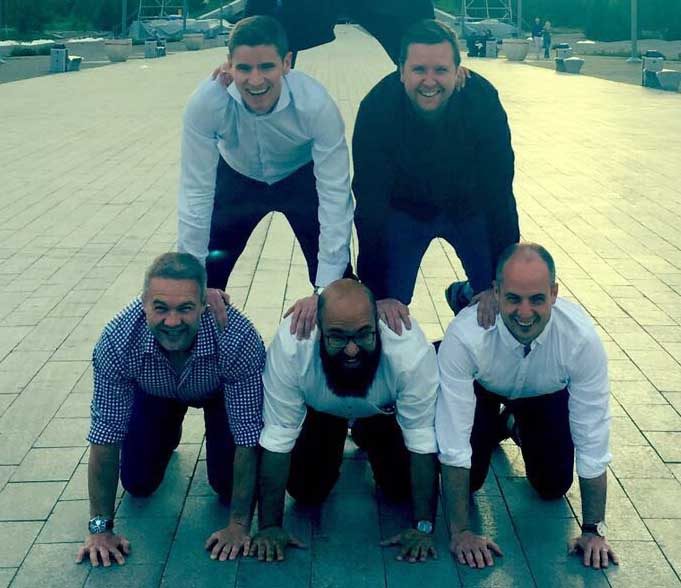Tom Martin (EMBA 2016) shares four stories about teamwork that he learnt from his EMBA Team Consulting Project, which he found instrumental in his own development as a leader and team player.

Geese migrate over 4,000 miles in a perfect V-formation. Whenever the leading one tires, another seamlessly slots into position in its place. This happens repeatedly, without hesitation. Flying in this formation allows the geese to fly over 70% further than they what they could achieve alone. That’s teamwork.
I wanted to share what I’ve learned about teamwork during my EMBA Team Consulting Project (TCP) over the last four months with four very short stories. During the project, not only do you perform valuable work, but you reflect deeply on how you and others work as a team … or not!
1. Geese: teamwork in action
Prior to their 2014 victory, Sir Alex Ferguson – one of the world’s most successful club managers – told the story of the geese to the European Ryder Cup team. Years earlier, he had once stopped the world-class footballers of Manchester United mid-training session, pointing up at the sky to show them some geese that were flying in perfect formation above them. This example epitomised how Sir Alex treasured and actively pursued traits such as teamwork and formation amongst his own successful teams.
After all, those of us with day-jobs would find it difficult to make every meeting, or be present at all times. However, I know that if one of my teammates in our Team Consulting Project (TCP) couldn’t lead in a situation, there was always at least one other that could take his place. When we had to present our ‘finale’ presentation to three CEOs at the end of our project, I had just received some heart-breaking family news. In this situation, as with the geese, my friends and colleagues were able to step in.
2. Shared values
Following the work my team and Idd had achieved on the TCP, we were approached by a separate business to discuss working together. Unlike our TCP work, there was equity on the table this time around. I have a busy day-job that I love, so didn’t want to, and couldn’t, pursue this opportunity. However, it was the first time in my life I’d ever sat across the table from someone that I could, in theory, have been a business partner with.
I remember the conversation well, though it was pretty mundane for the first 45 minutes. However, what really triggered my interest was when the prospective partners began to share with me their values, and – ultimately – their desire to make a difference. It dawned on me that what attracts me in business, more than anything, was shared values. Yet another lesson etched in my psyche from this process!
3. Humour
I know that I’m probably one of those over-serious guys. I am prone to tunnel vision, which is helpful when you want to ‘get things done’, but it’s also a potential derailleur for me. Having worked with my TCP team, I can honestly say I’ve not laughed so much, or as often, in years. In fact, humour was listed as one of the best characteristics a team can have during one of our Management Praxis lectures. Ironically, I had laughed this off at the time, but no longer!
4. Psychological safety
It’s hard to do the concept of psychological safety justice in one paragraph, but if you haven’t read Google’s study on psychological safety, please do! From Google’s data analytics (who better to do this analysis?!), the company found that psychological safety was the key trait in successful teams.
I’m not an expert, but psychological safety to me is the self-confidence you have knowing that your team will not embarrass, reject or punish you for speaking up. It’s about cultivating a team climate that is characterised by interpersonal trust, mutual respect, and people feeling comfortable being themselves. During the TCP, we ate, drank, flew, worked and even rode horses together. We truly depended on another. A psychologically safe team is not only an effective one, but quite simply an enjoyable and liberating one! If building such teams is not an ambition for your own workplace, I don’t know what is!
I’ve returned to my office with a new, higher bar to aim for. I’m looking at the teams I’m leading and am part of with a renewed perspective. I believe that real teams can transcend ‘work’, and can become part of your real life for the better. Building them is worth the effort, and my first step will be to ask myself:
‘Am I a goose?’


Leave a Reply